Nigara Hamono
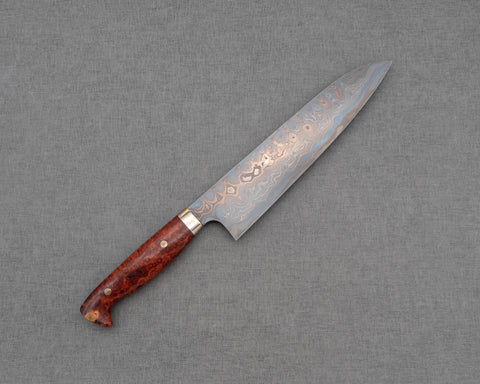
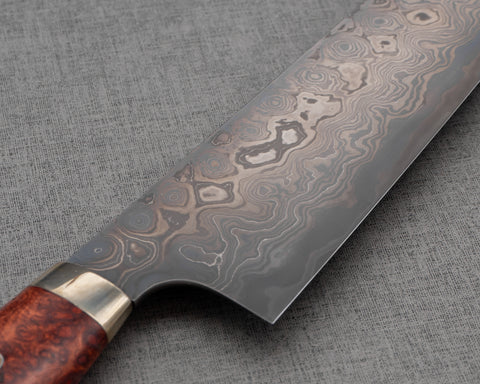
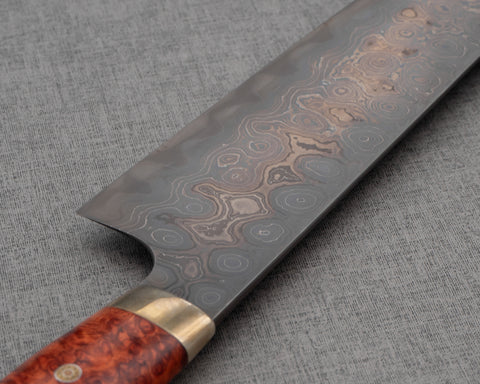
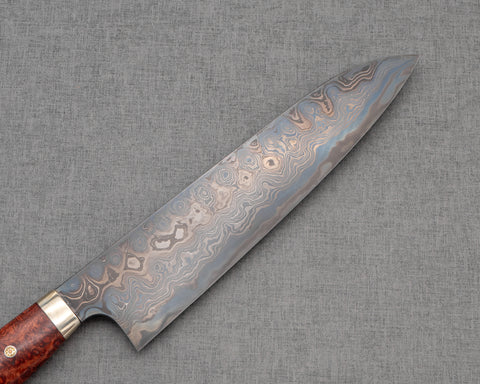
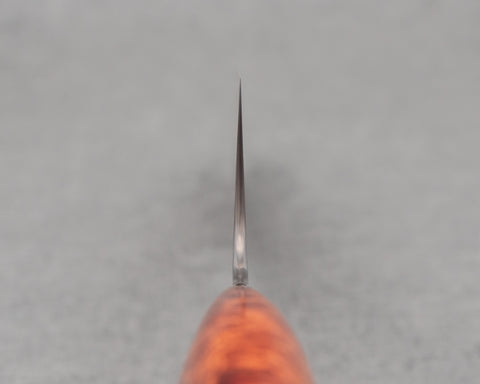
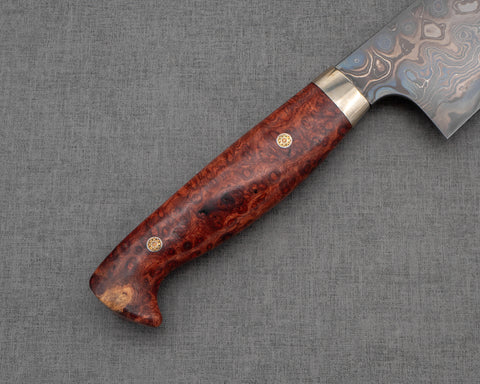
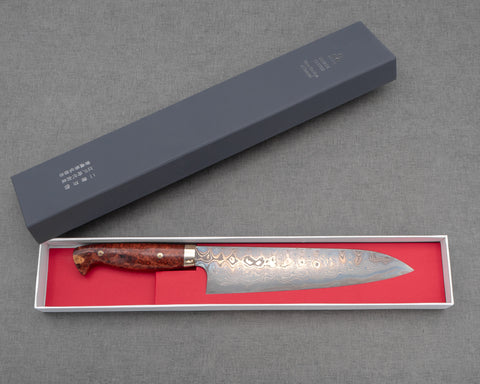
Nigara Aogami #2 / Shirogami #2 Coreless Damascus Kurosome 240mm Gyuto with Western Rosewood Handle
目前沒有提供取貨服務
The Nigara is the newest offering in the Nigara's coreless Damascus collection. This unique type of Damascus boasts enhanced durability and sharpness thanks to its incredibly uniform crystal structure. The handle is crafted from rosewood featuring a vivid orange color that is rare to be seen. It is a truly exceptional culinary tool for any expert in the field.
Spec:
- Origin (Made in): Hirosaki, Aomori Prefecture, Japan
- Brand: Nigara Hamono
- Craftsman: Tsuyoshi Yoshizawa (吉澤 剛)
- Knife Type: Kiritsuke Gyuto
- Blade
- Construction: Coreless Damascus
- Grind: Double-edged Blade (50/50 Grind)
- Steel Type: Aogami #2 (Blue #2) & Shirogami #2 (White #2)
- Hardness: Unknown
- Hand-forged, hand-ground, hand-sharpened
-
Blade Finishes: Colored Damascus
- Blade Length (heel-to-tip): 231mm (9.1")
- Blade Height (at heel): 53mm
- Spine Thickness
- Above heel: 3.1mm
- Middle: 2.2mm
- Handle
- Shape: Western
- Material: Rosewood
- Bolster: Stainless Steel
- Decorative: Mosaic Pins
- Length: 134mm
- Overall Length: 378mm
- Weight: 196g (6.91oz)
About Nigara Hamono 二唐刃物
With 350 years of history, starting from making swords for Tsugaru clan in the early Edo period, Nigara Hamono has passed down knowhow and skills for eight generations. Its 5th generation blacksmith Kunitoshi Nigara was a legendary sword maker, earning a long list of accolades, honorary titles and knighthood. The current (8th) generation blacksmith — Tsuyoshi Yoshizawa is supported by his father Toshiju Yoshizawa who has keen interests in art and music. Nigara’s famous Anmon design is the result of Toshiju’s love for Andy Warhol’s artworks. The family business’ expansion into construction steelworks has given Nigara unmatched access to in-house knowhow when it comes to advanced finishing. All these set Nigara apart as one of the most special knife makers in Japan.
Care:
Cutting Surface:
Recommended cutting surface: wood, rubberized boards and high-end composites, and quality plastics such as polyethene make acceptable cutting surfaces, and will help protect and prolong knife’s edge. AVOID glass, metal, countertops, and other rigid, non-forgiving surfaces.
Sharpening:
We recommend sharpening all quality Japanese knives on whetstones, as we believe they yield the best results for your knives.
